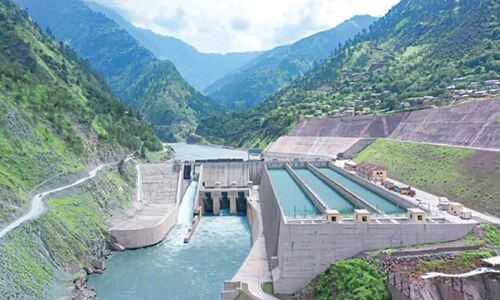ISLAMABAD, Oct 17: Less than 25 per cent of women entrepreneurs in Pakistan are microfinance borrowers as most businesswomen rely on savings, personal assets and family loans for capital, stated a report released by the World Bank on Wednesday.
The report titled, “Are Pakistan’s Women Entrepreneurs Being Served by the Microfinance Sector?” found that discriminatory lending practices are pushing Pakistani women entrepreneurs to look beyond microfinance providers (MFPs) for loans.
The report also found that loans do not always benefit women borrowers.
Men, who need loans, including those who have defaulted in the past, have begun to use women to access credit. Between 50 to 70 per cent of micro-loans to women in Pakistan may actually be used by their male relatives. In such cases, women borrowers remain wholly accountable for these loans.
In urban programmes that lend exclusively to women, only 28 per cent of the women borrowers, on average, were using the loans themselves. Compared with in rural areas, where both men and women were active clients, about 68 per cent of women clients were the final borrowers.
In addition, ninety per cent of women have to ask for permission from their husbands to obtain a loan, and sixty per cent have to “urge” their husbands to repay the loan.
Therefore, access to finance remains the biggest challenge for a woman who wants to start or grow a business.
The report documents findings suggested that the practice of passing on loans to male household members is potentially quite widespread; women may be bearing all the transaction costs and risks of accessing loans, but are not the final beneficiaries.
The report also said that the challenges of consumer protection and effectively reaching women entrepreneurs are likely to be not just limited to Pakistan.
By moving aggressively and pragmatically to tackle these issues, Pakistan will once again demonstrate its position as a global leader, pushing outward the frontier of financial outreach to women, and as a model for other countries in the region and around the world.
The report also identified steps that the microfinance sector can take to expand its outreach to women entrepreneurs. The challenges are daunting, but investment in financial literacy and better designed products can give women entrepreneurs the resources they need to grow their business.
The report recommended that the Strategic Framework for Sustainable Micro-finance in Pakistan should be revised to include an explicit emphasis on the financial inclusion of women. In addition, the framework should also promote strong corporate governance and direct boards of MFPs, as guardians of their mission, to ensure that the objective of women’s economic inclusion and empowerment is translated into practice.
“Access to finance remains one of the biggest challenges for Pakistani women who want to start and grow a business,” says Rachid Benmessaoud, World Bank Country Director for Pakistan. “But strict guarantor requirements and the practice of offering business loan products exclusively to men have only widened the gap between Pakistani businesswomen and the microfinance sector.”














































Dear visitor, the comments section is undergoing an overhaul and will return soon.